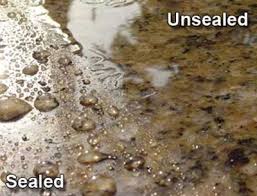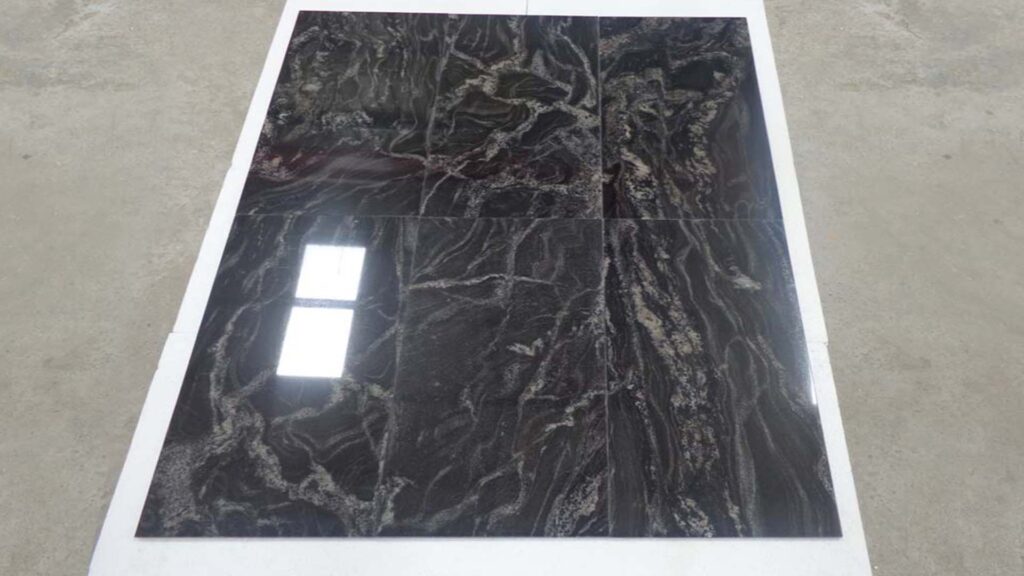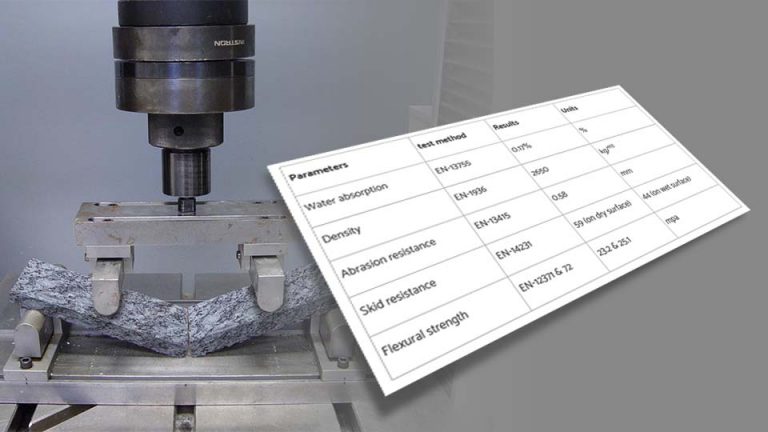
Usually, the natural stone soaks up water through tiny holes that are not visible to the naked eye. Like all natural stone types, granite stone is also prone to the threat of water damage. It is a granite processing unit that makes a granite tile or slab less likely to absorb water. The sealed granite countertop works well in a kitchen. The application area of a granite stone widely depends on its physical, chemical, and mechanical properties. When it comes to picking up any granite countertop for the kitchen, the ability of granite stone to withstand water elements matters the most. That is why it is important to understand how granite will react when contacts water. Read the content and find out more about the relationship between the granite water absorption rate and a granite stone.
Granite Water Absorption Capacity


There is a big question: Can water ruin granite? Stone experts know the answer to this question. Now, homeowners and granite lovers will get an answer to this question. It is the heat and scratch-resistant durability of the stone that makes it the first choice of all. When it comes to knowing the response of granite stone in the company of specific liquids, including water, granite seems prone to water to some extent. That is why homeowners need to take special care of granite countertops from water damage.
The nature of granite makes it porous. That is why a kitchen countertop is treated with sealants before and during installation. A qualified sealer makes the countertop less likely to absorb stains and liquids. Generally, the granite water absorption capacity ranges from .8 to .01 percent. When it comes to buying quality stone for commercial and residential construction, the following standard of granite water absorption rate matters the most. It includes:
• The standard requirement for water absorption in granite – .4 percent
• The standard requirement for water absorption in marble – .2 percent
Natural granite rocks face the wrath of water consistently through physical weathering and frost weathering. The former one is concerned with a process where water from rain, rivers, and the ocean breaks down rocks and soil naturally. The latter one is related to frost weathering that allows water to penetrate the cracks and pores of granite. But a fully-treated granite stone product functions smoothly and blocks water from damaging the surface of the stone.
Granite Water Absorption Rate (Volume, mass, and weight %)
When we talk about the water absorption rate, it is the water absorption ability of stone material under the standard atmospheric pressure. The amount of water absorbed by the stone is measured in a percentage. Remember that the smaller the water absorption rate, the harder and tighter the granite stone material. The following is the percentage list of a few popular granite stone colors available in India.
- Black Galaxy stone – 0.08 – 0.12%
- Absolute Black stone – 0.05 – 0.15%
- Viscon White stone – 0.04%
- Red Multicolor stone – 0.2 – 0.3%
- Steel Grey stone – 0.62%
- Tan Brown stone – 0.11%
- Kuppam Green stone – 0.24%
- Crystal Yellow stone – 0.24%
- Ivory Gold stone – 0.48 – 0.56
- Colombo Juprana stone – 0.26%
Granite surface and need to seal the stone
The sealing of granite always matters the most. So, you need to know when it is the right time to seal your granite. It is the “absorption rating” of the stone that tells the whole story. Remember that you needn’t apply sealers to granite stone if it has less than a .25% absorption rate. You can simply try the spill test by pouring a little water on the granite countertop. Here, you need to see if the surface of the stone changes color or not.
When a stone changes its color quickly, it will take more time to evaporate. If something like this happens, it means the surface is porous. If granite doesn’t change its color, it means you needn’t seal the granite. A smooth surface doesn’t absorb water. Hence, granite companies make rough stone products smooth by applying different finishes to them. These include flamed, brushed, bush-hammered, polished, lepatora, honed, and leather. So, a finished stone requires no sealing.

These days, granite factories produce high-quality and well-finished countertop products that function well and prevent water from entering into the pores of granite stone. Granite is both hard and less porous. Hence, it is durable and reliable to face water abuses. It is hard for water to penetrate the surface of a fully-treated granite countertop.
Professional granite suppliers from India offer top quality granite countertops in standard and custom sizes. B2B buyers can opt for quality countertops that have a lower granite water absorption rate. Before buying granite, B2B buyers should ask granite suppliers for a lab report showing the absorption rate of water by different granite products.
